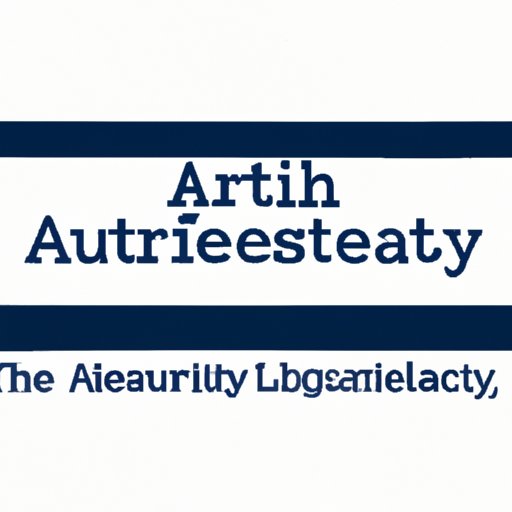
Introduction
Authentic leaders inspire trust and respect by being true to themselves and their values. This article will explore the concept of authentic leadership, its characteristics, benefits, and how individuals and organizations can develop their authentic leadership skills.
Defining Authentic Leadership
Authentic leadership is a leadership style that emphasizes transparency, empathy, and self-awareness. It originated in the 2000s and has evolved to become a popular approach among leaders in organizations and society as a whole. Authentic leaders are not afraid to show their vulnerabilities and admit their mistakes, and they create a culture of openness and trust within organizations.
Examples of authentic leaders include Oprah Winfrey, who has built a media empire based on her authenticity and empathy, and Warren Buffett, who is known for his integrity and self-awareness as a successful investor. These leaders have had a significant impact on society and their organizations by building loyal followers and communities that trust and believe in their leadership.
Characteristics of Authentic Leaders
Authentic leaders possess several core traits that set them apart from traditional leaders. These include:
- Honesty: Authentic leaders are truthful and transparent in their communication, and they do not hide their true intentions or motivations.
- Transparency: Authentic leaders are open and honest about their feelings, thoughts, and actions, and they encourage their followers to do the same.
- Empathy: Authentic leaders have the ability to put themselves in other people’s shoes, understand their perspectives, and respond with compassion.
- Self-awareness: Authentic leaders have a deep understanding of their strengths, weaknesses, and values, and they strive to align their actions and decisions with their innermost beliefs.
- Integrity: Authentic leaders are consistent in their actions and words, and they align their behavior with their values, even if it may not be popular.
Each of these characteristics is essential for authentic leadership and contributes to building a culture of trust and excellence within organizations.
Benefits of Authentic Leadership
Organizations that embrace authentic leadership can benefit in several ways. For example:
- Increased employee trust: Authentic leaders create a culture of openness and honesty, which fosters trust between leaders and their followers. This trust can lead to greater employee engagement and loyalty.
- Improved performance: Authentic leaders prioritize their employees’ well-being and development, which can lead to improved individual and team performance.
- Stronger relationships with stakeholders: Authentic leaders build trust and rapport with customers, shareholders, and partners, which can lead to stronger relationships and increased business success.
Organizations that have benefited from authentic leadership include Patagonia, which has built a loyal customer base by aligning its values with its business practices, and Zappos, which has a culture of transparency and trust that permeates throughout the company.
How to Develop Authentic Leadership Skills
Developing authentic leadership skills requires a commitment to self-awareness, vulnerability, and empathy. Some ways to develop these skills include:
- Practice active listening: Listen to others with an open mind and seek to understand their perspectives before responding.
- Show vulnerability: Admit your mistakes and weaknesses to build trust and show that you are human.
- Cultivate empathy: Put yourself in other people’s shoes and try to understand their feelings and motivations.
- Lead by example: Model the behavior you expect from others, and align your actions with your values.
- Courage to take risks: Embrace uncertainty and show courage in decision-making and solving problems.
By practicing these skills, individuals can develop their authentic leadership style and create a culture of trust within their organizations.
Challenging the Traditional Leadership Model
The traditional model of leadership emphasizes hierarchy, control, and directives. However, this model can limit creativity, innovation, and employee engagement. In contrast, authentic leadership challenges the traditional model by emphasizing transparency, trust, and employee empowerment.
By adopting an authentic leadership approach, organizations can build a culture of openness and creativity that encourages employees to take risks, innovate, and contribute to the organization’s success.
Leveraging Authentic Leadership in Business
Businesses can leverage authentic leadership in many ways. For example:
- Building a strong brand: By aligning their values with their business practices, companies can build a strong brand that resonates with customers and employees.
- Empowering employees: Authentic leaders empower their employees by giving them the freedom to take risks and make decisions that contribute to the organization’s success.
- Promoting innovation: By creating a culture of creativity and innovation, organizations can stay ahead of the competition.
- Increasing employee engagement: Authentic leaders prioritize their employees’ well-being and development, which can lead to greater engagement and loyalty.
Companies that have successfully implemented authentic leadership practices include Google, which emphasizes transparency and employee empowerment, and Southwest Airlines, which has a culture of trust and open communication that extends throughout the organization.
Conclusion
Authentic leadership is a leadership style that emphasizes honesty, transparency, empathy, self-awareness, and integrity. Organizations that embrace authentic leadership can benefit from increased employee trust, improved performance, and stronger relationships with stakeholders. Individuals can develop their authentic leadership skills by practicing active listening, vulnerability, and empathy. By challenging the traditional model of leadership, and leveraging authentic leadership in business, organizations can build a culture of trust and excellence that leads to success.
So take a step back and reflect on your own leadership style. Are you true to your values and transparent in your communication? Do you prioritize your employees’ well-being and development? By embracing the principles of authentic leadership, you can become a more effective and respected leader, and help your organization achieve its goals.





